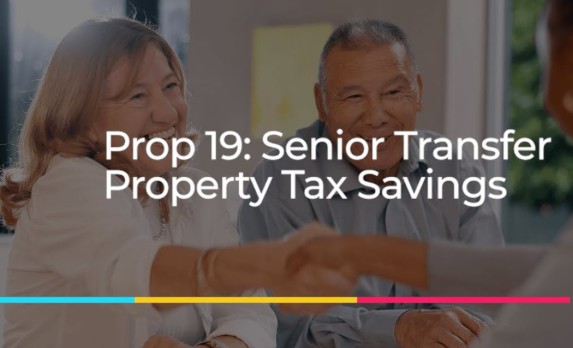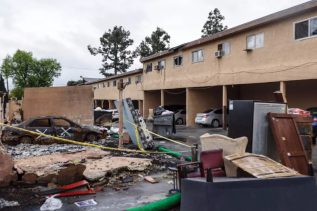UPDATED 6/28/23
Previously, we wrote:
“There has been a lot of public discourse, political discussion, and general controversy over the topic of Vacation Rentals (aka: Short Term Rentals, STVR’s, or as the city refers to them: Short-Term Residential Occupancy (STRO). Whatever you want to call them, the topic is the same. Some residents love them, some hate them. Well, there was enough public comment on this topic for the City of San Diego to take action. Notice I said “City” and not “County”. Each of the 11 municipalities in San Diego County is responsible for determining how they individually want to handle this topic. This article addresses the City of San Diego’s response only.”
Update as of 6/28/23:
Well, after tremendous controversy, extensive public testimony and years in the making, the City of San Diego has adopted a new ordinance to address STROs city-wide. That ordinance officially went in to effect as of May 1, 2023. So now there are rules and regulations in place if you are contemplating renting out your property. The city’s website discusses STROs in great detail if you want to read more.
There were four Tiers of licensing created. Depending on whether you want to rent more or less than 20 days per year and whether you want to participate in a “Whole Home” or a “Home Sharing” scenario, these are the factors you need to consider to determine which Tier is right for you.
Interestingly, the city allocated about 5419 Tier 3 licenses which equates to about 1% of the entire housing stock of the City of San Diego (excluding Mission Beach). It was anticipated that there were going to be in excess of 15,000 applicants fighting for just 1/3 as many spots. As of June 16, 2023 only 4036 Tier 3 licenses have been issued – no where near the demand they were expecting. Even today, Tier 1, 2 and 3 licenses are still available.
See the table below for a summary of the different Tiers. You can start the process and apply for an STRO license on the city website.
| Tier 1 Part-Time |
Tier 2 Home Sharing |
Tier 3 Whole Home (excluding Mission Beach) |
Tier 4 Mission Beach Whole Home |
|
Rented for an aggregate of 20 days or less per year The owner or permanent resident does not need to reside onsite during the STRO License expires two years after issuance. |
Renting a room or rooms in the home for more than 20 days per year so long as the owner or permanent resident resides onsite The owner or permanent resident may be absent from the permanent residence during the STRO for up to 90 days per calendar year Home sharing includes duplex properties and eligible accessory dwelling units (ADU) when the host resides onsite Most ADUs do not qualify for STRO License expires two years after issuance. |
Rentals for more than 20 days per year where the owner or permanent resident does not reside onsite. | |
|
The number of licenses issued will not exceed 1% of San Diego’s total housing units outside the Mission Beach Community Planning Area * Guest two-night minimum stay required License expires two years after issuance |
The number of licenses issued will not exceed 30% of the Mission Beach Community Planning Area * Guest two-night minimum stay required License expires two years after issuance. |
||
* Based on the most recent Demographic and Socioeconomic Housing estimates issued by the San Diego Association of Governments (SANDAG) rounded up to the nearest whole number.
Original Post from June 2022
There has been a lot of public discourse, political discussion, and general controversy over the topic of Vacation Rentals (aka: Short Term Rentals, STVR’s, or as the city refers to them: Short-Term Residential Occupancy (STRO). Whatever you want to call them, the topic is the same. Some residents love them, some hate them. Well, there was enough public comment on this topic for the City of San Diego to take action. Notice I said “City” and not “County”. Each of the 11 municipalities in San Diego County is responsible for determining how they individually want to handle this topic. This article addresses the City of San Diego’s response only.
I have been inundated with inquiries about how STROs are being handled and what rules have been or are being put into place. This article is in response to those inquiries and will hopefully shed a little light on the rules and the process as it stands now. The City of San Diego has adopted a new ordinance to address STROs city-wide. That ordinance goes into effect July 1, 2022. CLICK HERE FOR STRO UPDATE
The City of San Diego website has a page discussing this issue as well. In summary, there are four Tiers of licensing going to be available. Depending on whether you want to rent more or less than 20 days per year and whether you want to participate in a “Whole Home” or “Home Sharing” scenario are the factors you need to consider to determine which Tier is right for you.
See the table below for a summary of the different Tiers. There is also a Pre-Registration Survey that you can fill out to get the ball rolling. As of the date of this article, this is the place to start. The city has not made any formal applications available yet.
| Tier 1 Part-Time |
Tier 2 Home Sharing |
Tier 3 Whole Home (excluding Mission Beach) |
Tier 4 Mission Beach Whole Home |
|
Rented for an aggregate of 20 days or less per year The owner or permanent resident does not need to reside onsite during the STRO License expires two years after issuance. |
Renting a room or rooms in the home for more than 20 days per year so long as the owner or permanent resident resides onsite The owner or permanent resident may be absent from the permanent residence during the STRO for up to 90 days per calendar year Home sharing includes duplex properties and eligible accessory dwelling units (ADU) when the host resides onsite Most ADUs do not qualify for STRO License expires two years after issuance. |
Rentals for more than 20 days per year where the owner or permanent resident does not reside onsite. | |
|
The number of licenses issued will not exceed 1% of San Diego’s total housing units outside the Mission Beach Community Planning Area * Guest two-night minimum stay required License expires two years after issuance |
The number of licenses issued will not exceed 30% of the Mission Beach Community Planning Area * Guest two-night minimum stay required License expires two years after issuance. |
||
* Based on the most recent Demographic and Socioeconomic Housing estimates issued by the San Diego Association of Governments (SANDAG) rounded up to the nearest whole number.












